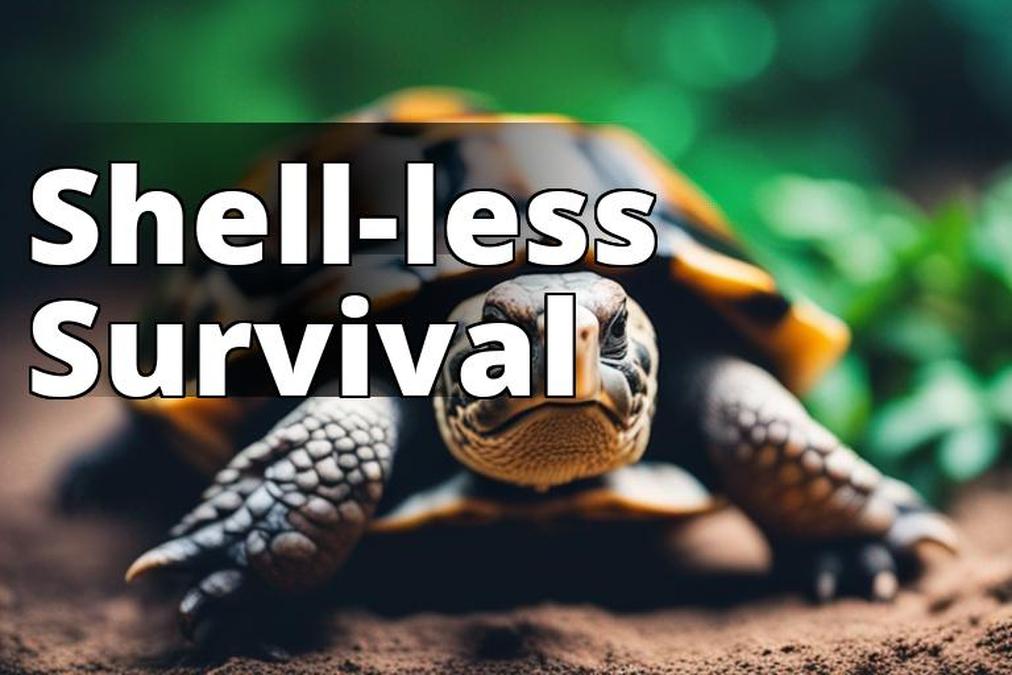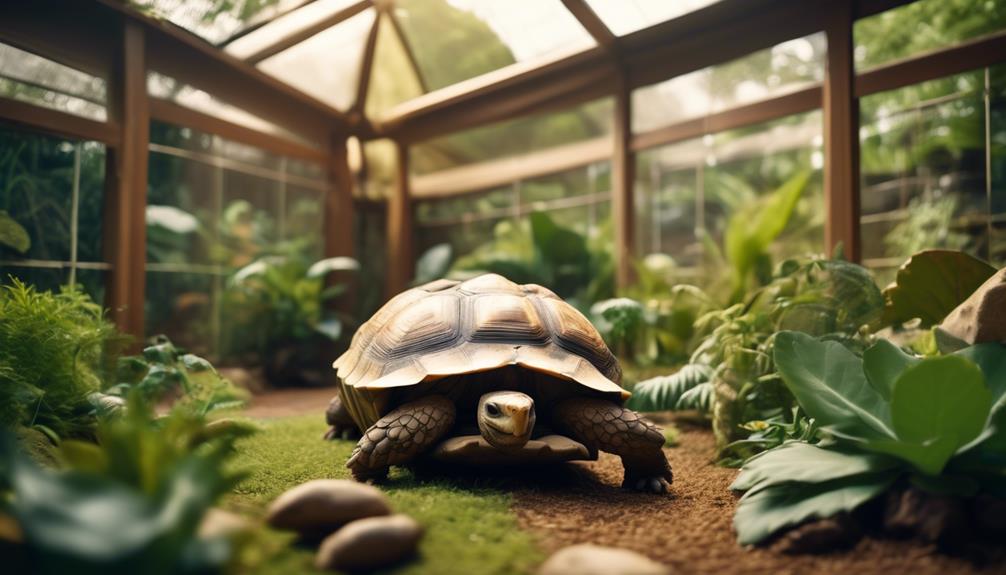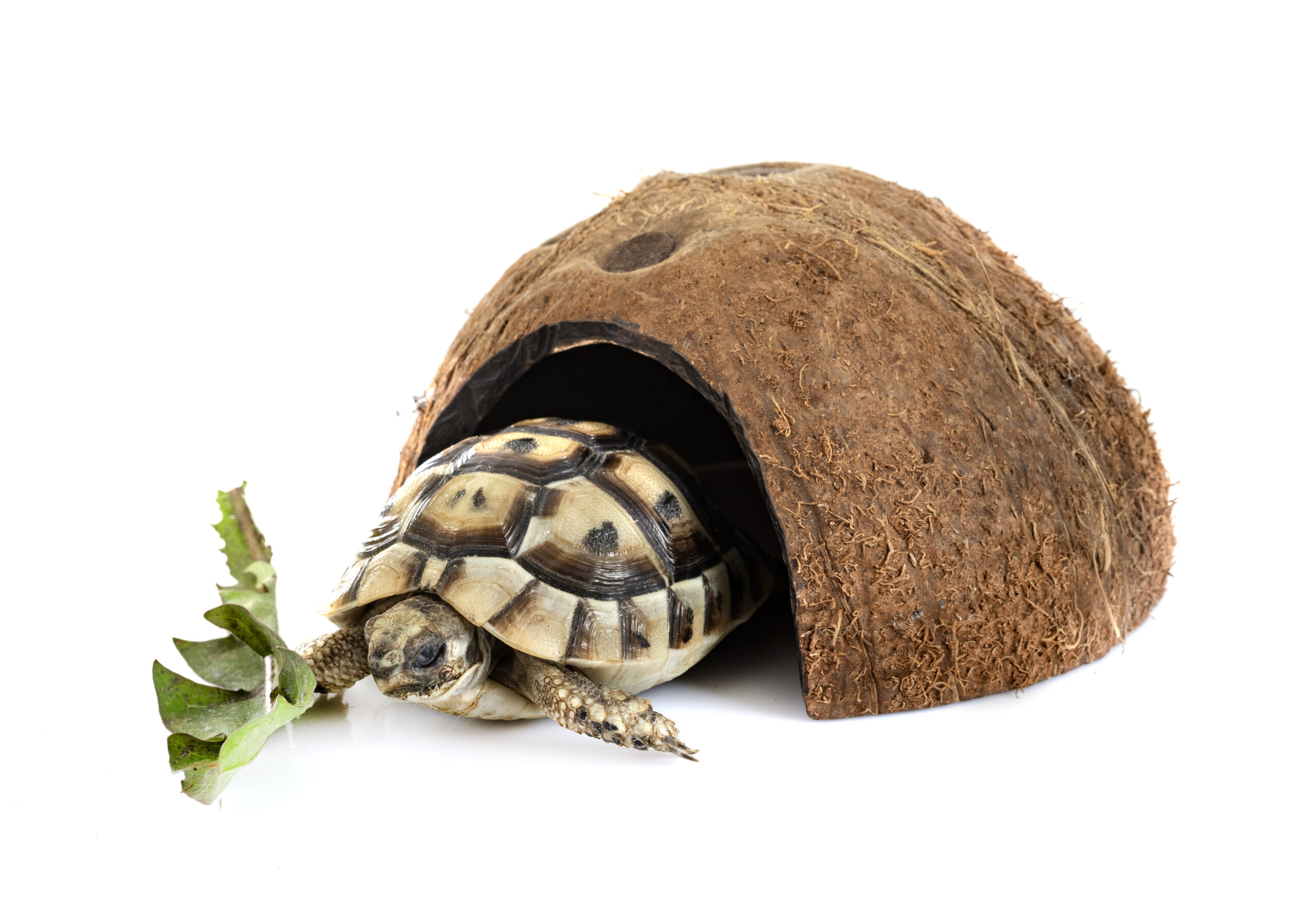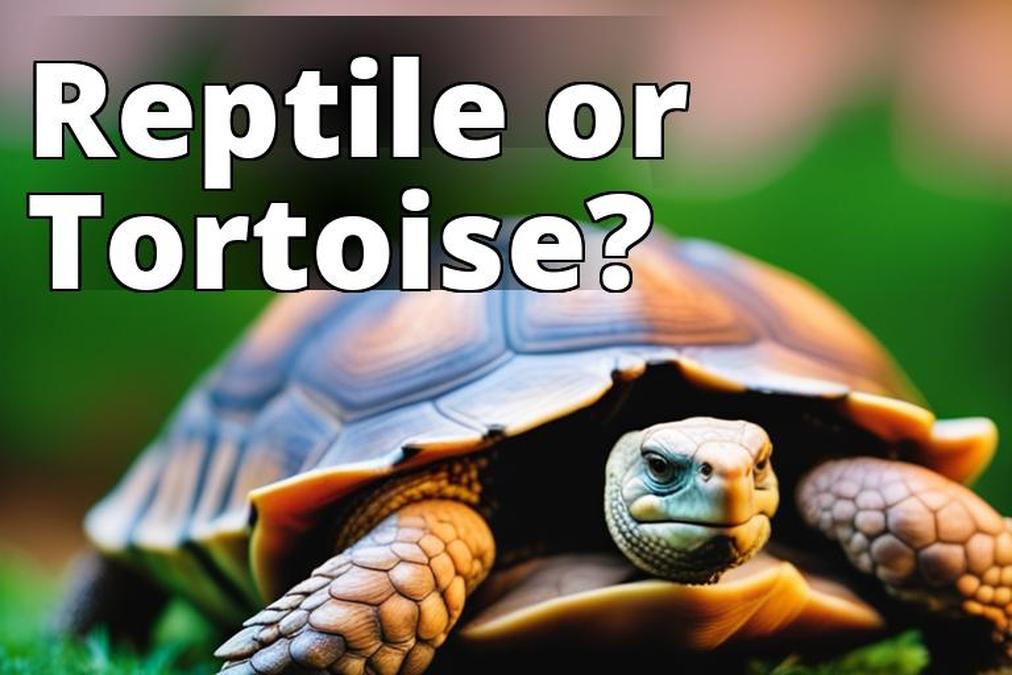Tortoises are fascinating creatures that are often kept as pets. While they are known for their hard, protective shell, there are some tortoises that are born without a shell or have lost it due to injury or illness. These tortoises are unique and require special care. In this article, we will explore the pros and cons of owning a tortoise without a shell as a pet.
Tortoise Without Shell as a Pet Pros and Cons
- Tortoise without a shell is vulnerable to predators and infection.
- People consider a tortoise without a shell as a pet due to its unique appeal and popularity of exotic pets.
- Caring for a tortoise without a shell requires specialized care, veterinary care, and potential costs.
What is a Tortoise Without a Shell?
A. Definition of a Tortoise Without a Shell
A tortoise without a shell is a rare occurrence in the animal kingdom. The shell of a tortoise is an essential part of its anatomy and provides protection, support, and a source of calcium. Tortoises without shells are known as “shell-less” tortoises, and they can face a variety of challenges.
B. Causes of a Tortoise Without a Shell
There are several causes of a tortoise without a shell, including genetic mutations, trauma, and disease.
1. Genetic Mutations
A genetic mutation can cause a tortoise to develop without a shell. This mutation can be inherited from the parents or occur spontaneously during development.
2. Trauma
Trauma is another common cause of a tortoise without a shell. This can occur due to an injury or accident, such as being hit by a car or attacked by a predator.
3. Disease
Disease can also cause a tortoise to lose its shell. Some diseases, such as shell rot, can cause the shell to deteriorate, leaving the tortoise without protection.

C. Anatomy of a Tortoise and the Importance of the Shell for Survival
The shell of a tortoise is an essential part of its anatomy. It provides support for the tortoise’s body and organs, protects it from predators, and stores calcium. Without a shell, a tortoise is vulnerable to injury and disease and may struggle to survive in the wild.

Risks and Challenges of Keeping a Tortoise Without a Shell as a Pet
A. Vulnerability to Predators
One of the most significant risks of owning a tortoise without a shell is its vulnerability to predators. Without a protective shell, the tortoise is more susceptible to attack and injury.
B. Susceptibility to Infection
Tortoises without shells are also more susceptible to infection. The shell serves as a barrier against bacteria and other pathogens, so without it, the tortoise is at risk of developing infections and diseases.
C. Difficulty Regulating Body Temperature
Tortoises regulate their body temperature by basking in the sun or retreating to the shade. Without a shell, the tortoise may struggle to regulate its body temperature, leading to health problems.
D. Emotional and Financial Challenges
Owning a tortoise without a shell can also be emotionally and financially challenging. These animals require specialized care, which can be expensive. It can also be difficult to find a qualified veterinarian who has experience with shell-less tortoises.
Why Do Some People Consider a Tortoise Without a Shell as a Pet?
A. The Popularity of Exotic Pets
Exotic pets are becoming more popular, and people are looking for unique and unusual animals to keep as pets. Shell-less tortoises are one such animal that appeals to some pet owners.
B. Unique Appeal of Having a Pet That’s Different from the Norm
Some people are drawn to the unique appeal of a pet that is different from the norm. A shell-less tortoise is undoubtedly a unique pet that will stand out from the crowd.
C. Ethical Implications of Owning an Exotic Pet
There are ethical implications to owning an exotic pet, including a tortoise without a shell. It is essential to consider the welfare of the animal before deciding to bring it into your home.

How to Care for a Tortoise Without a Shell
A. Diet
A shell-less tortoise requires a specialized diet to ensure that it gets the nutrients it needs to thrive. A diet rich in calcium, vitamin D, and protein is essential for these animals.
B. Habitat
The habitat for a shell-less tortoise must be carefully designed to meet its unique needs. The enclosure should be dry, warm, and provide ample space for the tortoise to move around.
C. Veterinary Care
Shell-less tortoises require specialized veterinary care. It is essential to find a qualified veterinarian who has experience treating these animals.
D. Importance of Finding a Qualified Veterinarian and Specialized Care
Finding a qualified veterinarian who has experience with shell-less tortoises is crucial. These animals require specialized care, and it is essential to find a veterinarian who can provide the necessary treatment.
E. Potential Costs Associated with Specialized Care
The cost of caring for a shell-less tortoise can be high. These animals require specialized care, which can be expensive. It is essential to consider the potential costs before deciding to keep a shell-less tortoise as a pet.
| Legal Considerations for Owning a Tortoise Without a Shell |
|---|
| 1. Research the legal requirements for owning an exotic pet, including permits, licenses, and regulations. |
| 2. Some states and countries prohibit the ownership of exotic pets. |
| 3. Consider the potential impact of owning an exotic pet on the environment. |

Legal Considerations
A. Permits, Licenses, and Regulations
Owning exotic pets, including a tortoise without a shell, may require permits, licenses, and compliance with regulations. It is essential to research the legal requirements before bringing a shell-less tortoise into your home.
B. Ethical Implications of Owning an Exotic Pet
There are ethical implications to owning an exotic pet, including a shell-less tortoise. It is essential to consider the welfare of the animal and the impact that owning an exotic pet may have on the environment.
C. Responsibility That Comes with Owning an Exotic Pet
Owning an exotic pet comes with a great deal of responsibility. It is essential to provide proper care and treatment for the animal and to consider the ethical implications of owning a shell-less tortoise.

Ethical Considerations
A. Impact on the Animal’s Welfare
The welfare of the animal is of utmost importance when considering owning a tortoise without a shell. It is essential to ensure that the animal’s needs are being met and that it is living a comfortable and healthy life.
B. Appropriateness of Keeping an Animal that has been Bred or Born Without a Shell
There are ethical considerations to keeping an animal that has been bred or born without a shell. It is essential to consider the welfare of the animal and whether it is appropriate to breed animals with this condition.
C. Responsible Pet Ownership
Responsible pet ownership is essential when considering owning a shell-less tortoise. It is essential to provide proper care and treatment for the animal and to consider the ethical implications of owning an exotic pet.
D. Prioritizing the Animal’s Well-being Over Personal Interests
The well-being of the animal should always be prioritized over personal interests. It is essential to consider the ethical implications of owning a shell-less tortoise and whether it is in the best interest of the animal.
Personal Experience: The Challenges of Owning a Tortoise Without a Shell
I have always been fascinated by exotic pets and when I saw a tortoise without a shell at a local pet store, I knew I had to bring it home. My excitement quickly turned to concern as I realized the challenges that come with owning such an animal.
One of the biggest challenges is the vulnerability to predators. My tortoise without a shell is unable to protect itself from other animals, making it necessary for me to keep a constant watch on it. Additionally, the animal is susceptible to infection, which requires regular veterinary care.
Regulating body temperature is another concern. Without a shell, my tortoise struggles to maintain a consistent body temperature which requires me to be vigilant and make adjustments to its environment regularly.
The emotional and financial challenges of owning a tortoise without a shell cannot be ignored. It can be difficult to find a specialized veterinarian who can provide the necessary care and the costs associated with such care can be significant.
Despite these challenges, I have grown to love my tortoise without a shell and am committed to providing the best care possible. It is important for anyone considering an exotic pet to understand the unique challenges that come with ownership and to prioritize the animal’s welfare above all else.
Conclusion
A. Key Points of the Article
Owning a tortoise without a shell can be a unique and rewarding experience, but it also comes with risks and challenges. It is essential to provide proper care and treatment for the animal and to consider the ethical implications of owning an exotic pet.
B. Importance of Doing Thorough Research Before Considering an Exotic Pet
Before considering owning an exotic pet, it is essential to do thorough research and understand the risks and challenges involved. It is also important to consider the ethical implications of owning an exotic pet.
C. Prioritizing the Welfare of the Animal Above All Else
The welfare of the animal should always be prioritized above personal interests. It is essential to provide proper care and treatment for the animal and to consider the ethical implications of owning an exotic pet.
D. Resources for Pet Owners Interested in Learning More About Tortoises Without Shells or Exotic Pets in General
There are many resources available for pet owners interested in learning more about tortoises without shells or exotic pets in general. It is important to seek out reliable information and resources to ensure that you are providing the best possible care for your pet.







